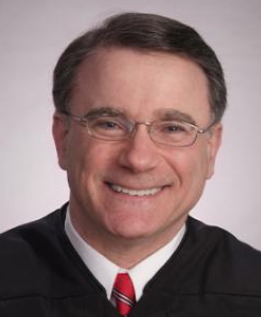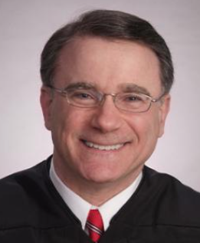
Stabile
PHILADELPHIA - One appellate judge is concerned his colleagues might be headed down a road that will jeopardize the rights of Pennsylvanians to fight court rulings they think are wrong.
Superior Court judge Victor Stabile on Aug. 18 called out other members of the court who found a subcontractor didn't properly preserve certain arguments to make in its appeal of a multimillion-dollar work-injury verdict from Philadelphia.
Independence Construction Corporation raised 12 issues on appeal but the court tossed three of them without ruling on ICC's arguments, deciding instead ICC had waived the right to even bring them up.
"(T)he majority's finding of waiver represents a disturbing and possibly growing trend within this Court of avoiding merits consideration of issues based on hyper-technical waiver grounds," Stabile wrote in a concurring and dissenting opinion.
"This trend does not honor our duty to liberally construe our rules and does violence to every citizen's constitutional right to appeal."
The case was brought by Jesse Hernandez, who was working on trenches running parallel to SEPTA lines when he was struck by a train. He suffered severe injuries and won $7.3 million - 70% of which was attributed to ICC.
ICC made a dozen gripes to the Superior Court about how the case was handled, including the idea it was essentially Hernandez's employer (it had contracted Hernandez's actual employer to help) and was protected from suit by Workers' Compensation.
Judges Timika Lane and Anne Lazarus rejected all of ICC's arguments and affirmed the verdict. What stuck out to their dissenting colleague, Stabile, is how they handled three of them.
The trial judge had allowed evidence that alleged ICC didn't comply with SEPTA requirements that said ICC was not allowed to have a financial interest in the subcontractor it selected and it needed to allocate at least 14% of the contract to DBEs, which are companies owned by a woman or minority.
Hernandez's lawyers at Saltz Mongeluzzi wanted to show ICC owner, white man Steven Hare, also owned Hernandez's employer, Minority Services Inc. ICC's lawyers objected, claiming it wasn't relevant to the safety of the worksite.
The trial judge found that the issue went to Hare's credibility. ICC's appeal said it suggested to the jury that Hare manipulated the system.
Despite the in-court objection, the majority of the Superior Court found ICC had waived its right to appeal because it argued the evidence was irrelevant and didn't formally cite a rule regarding a witness' character until it was too late.
"Even a general objection is adequate to preserve a challenge to an evidentiary ruling where the evidence is inadmissible for any purpose," Stabile wrote in his dissent, citing earlier Superior Court rulings.
ICC had even successfully motioned to stop a witness from discussing ICC's and MSI's ownership, which seemed to stop that angle before it was brought up again during trial. Hernandez's lawyers didn't even argue ICC had waived its right to appeal that. The majority took it up on its own.
"This only further establishes that ICC's purported waiver is not apparent from the record, and that its preservation of the subject claims was entirely clear from context," Stabile wrote.
The testimony impacted the jury and a new trial should be ordered, he added. Hernandez's lawyers told the jury Hare had a propensity to break "promises after promise."







